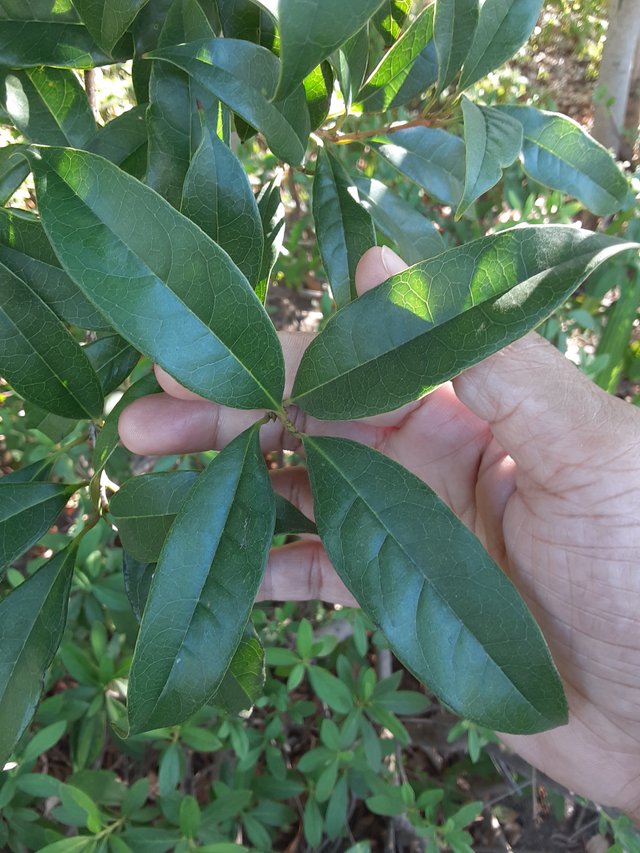
Osmanthus fragrans var. aurantiacus, also known as orange-flowered tea olive, is a species of evergreen shrub or small tree in the olive family Oleaceae. It is native to China, Japan, and Korea.
The leaves are oval-shaped, leathery, and glossy green, with a length of 5-9 cm and a width of 2-4 cm. The leaf margins are smooth or finely toothed. The flowers are orange-yellow, small, and fragrant, and are produced in clusters in the late summer and autumn. The fruits are purple-black drupes, containing a single hard-shelled seed.
The leaves of Osmanthus fragrans var. aurantiacus have a number of medicinal properties. They are a rich source of antioxidants, and have been shown to have anti-inflammatory, anti-cancer, and anti-diabetic effects. They are also used in traditional Chinese medicine to treat a variety of ailments, including coughs, colds, and fevers.
Here are some of the specific health benefits of Osmanthus fragrans var. aurantiacus leaves:
- Antioxidant: The leaves contain high levels of antioxidants, which can help protect the body against damage from free radicals. Free radicals are unstable molecules that can damage cells and tissues, leading to a number of health problems, including cancer, heart disease, and stroke.
- Anti-inflammatory: The leaves have anti-inflammatory properties, which can help reduce inflammation throughout the body. Inflammation is a major underlying factor in many chronic diseases, including arthritis, asthma, and inflammatory bowel disease.
- Anti-cancer: The leaves have been shown to have anti-cancer properties, and may help to prevent the growth and spread of cancer cells.
- Anti-diabetic: The leaves have been shown to have anti-diabetic properties, and may help to improve blood sugar control in people with diabetes.
If you are interested in using Osmanthus fragrans var. aurantiacus leaves for their health benefits, you can purchase them as a tea, extract, or supplement. It is important to note that there is limited research on the safety and efficacy of Osmanthus fragrans var. aurantiacus leaves, so it is best to consult with a healthcare professional before taking them.
Ref.:
 |  |
Upvoted! Thank you for supporting witness @jswit.
Downvoting a post can decrease pending rewards and make it less visible. Common reasons:
Submit